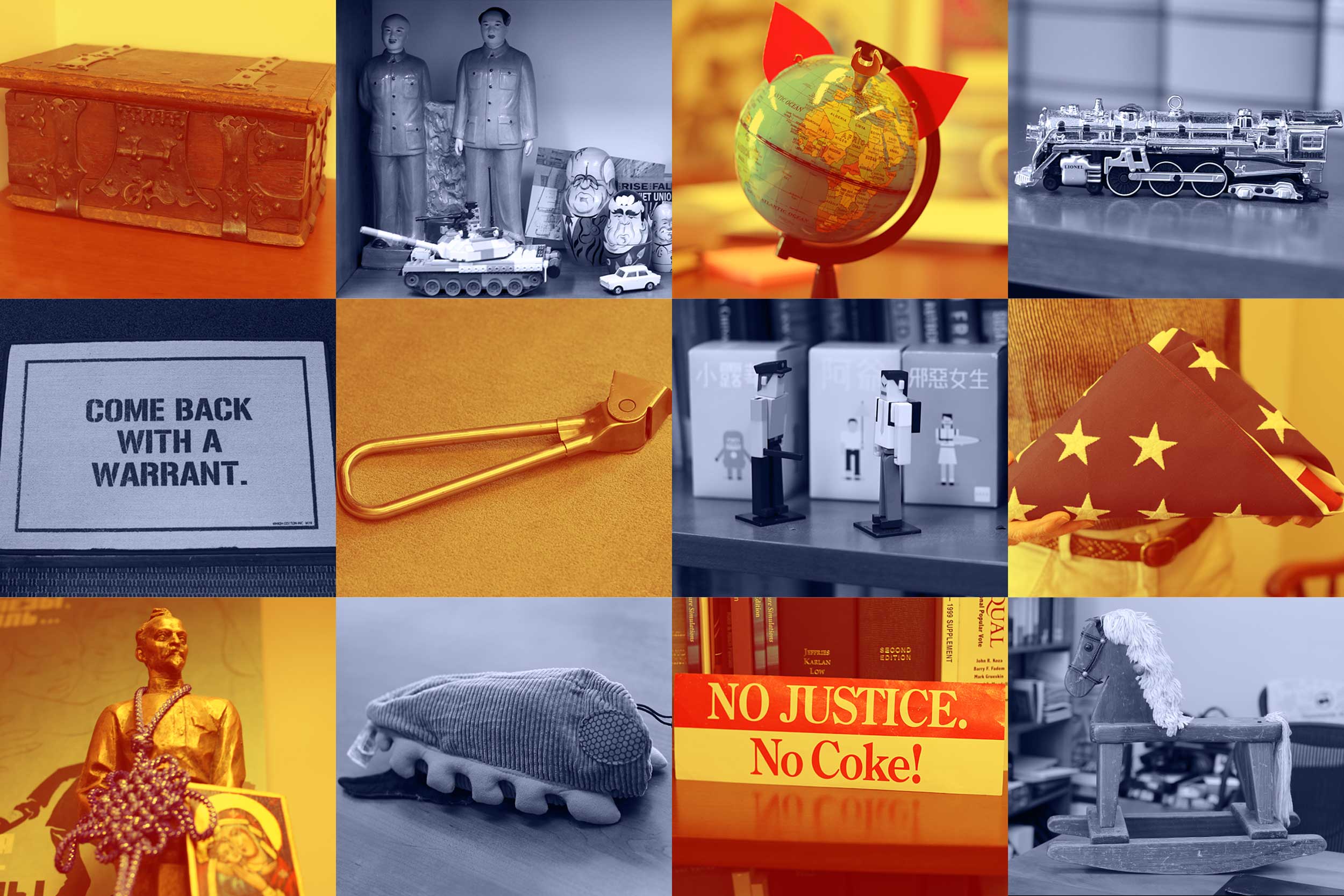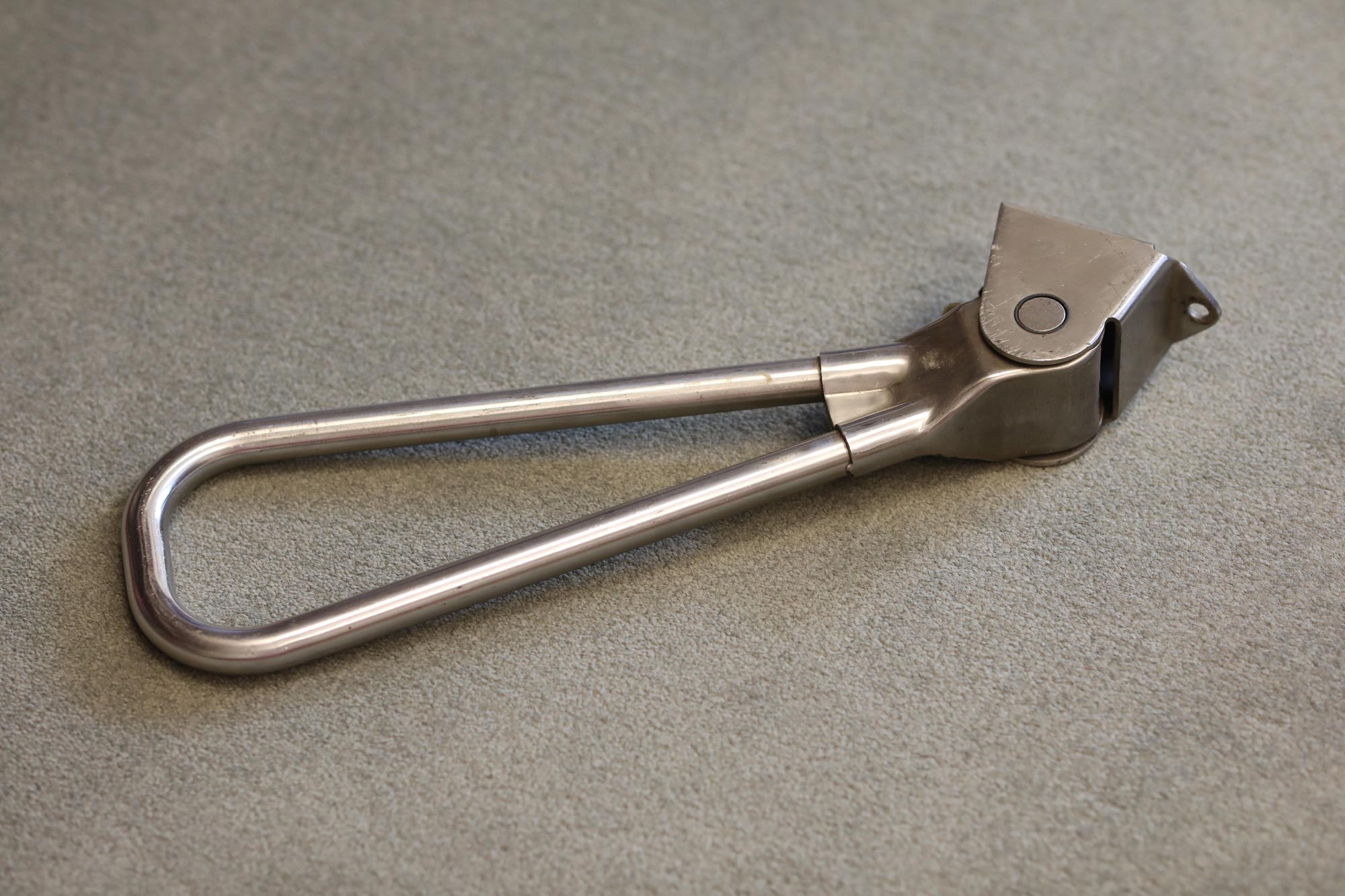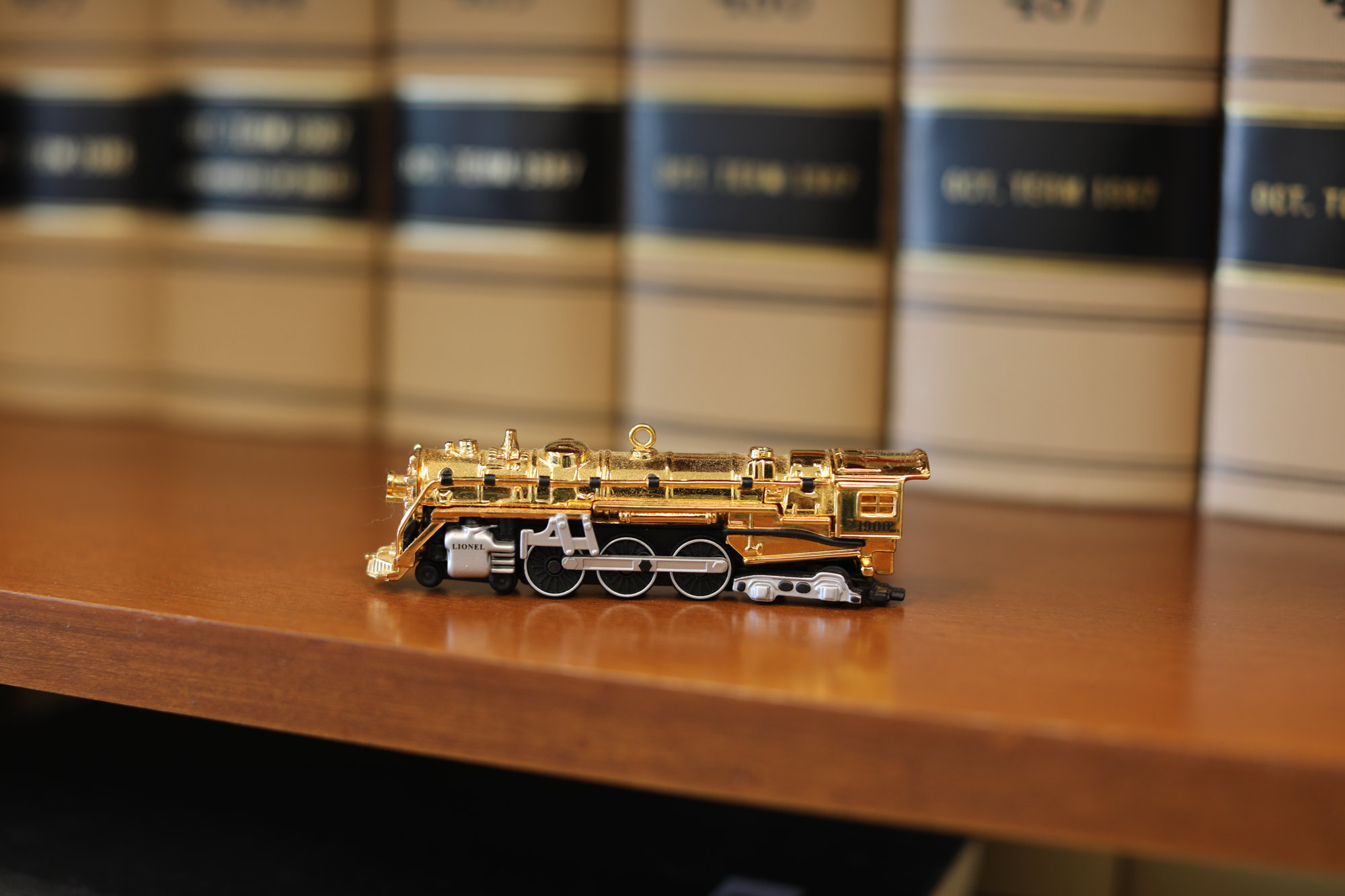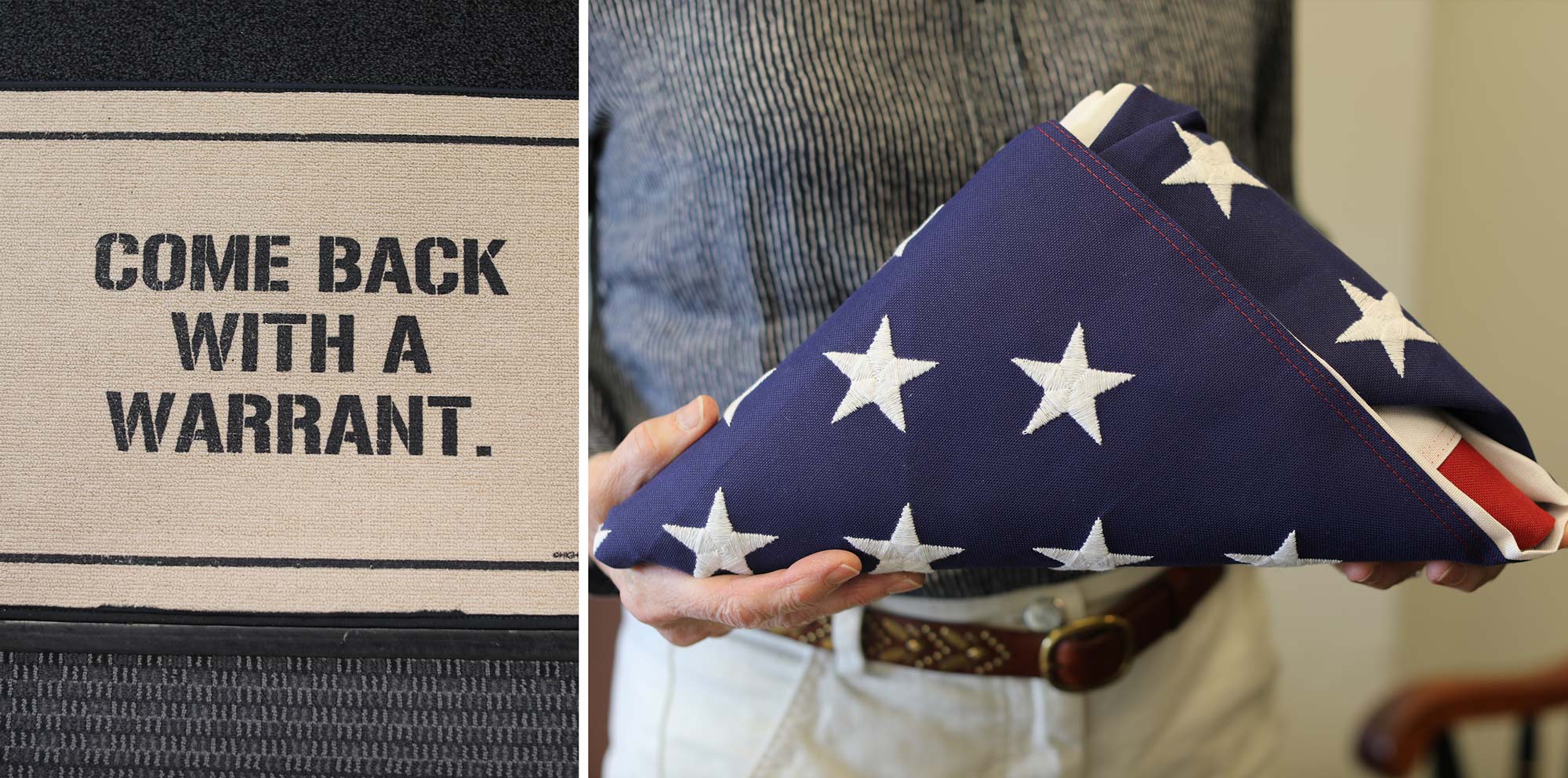Amid the rows of legal texts lining faculty members’ offices at the University of Virginia School of Law are artifacts that offer unique insights into professors’ professional endeavors and teaching careers.
And there’s a story behind every memento.
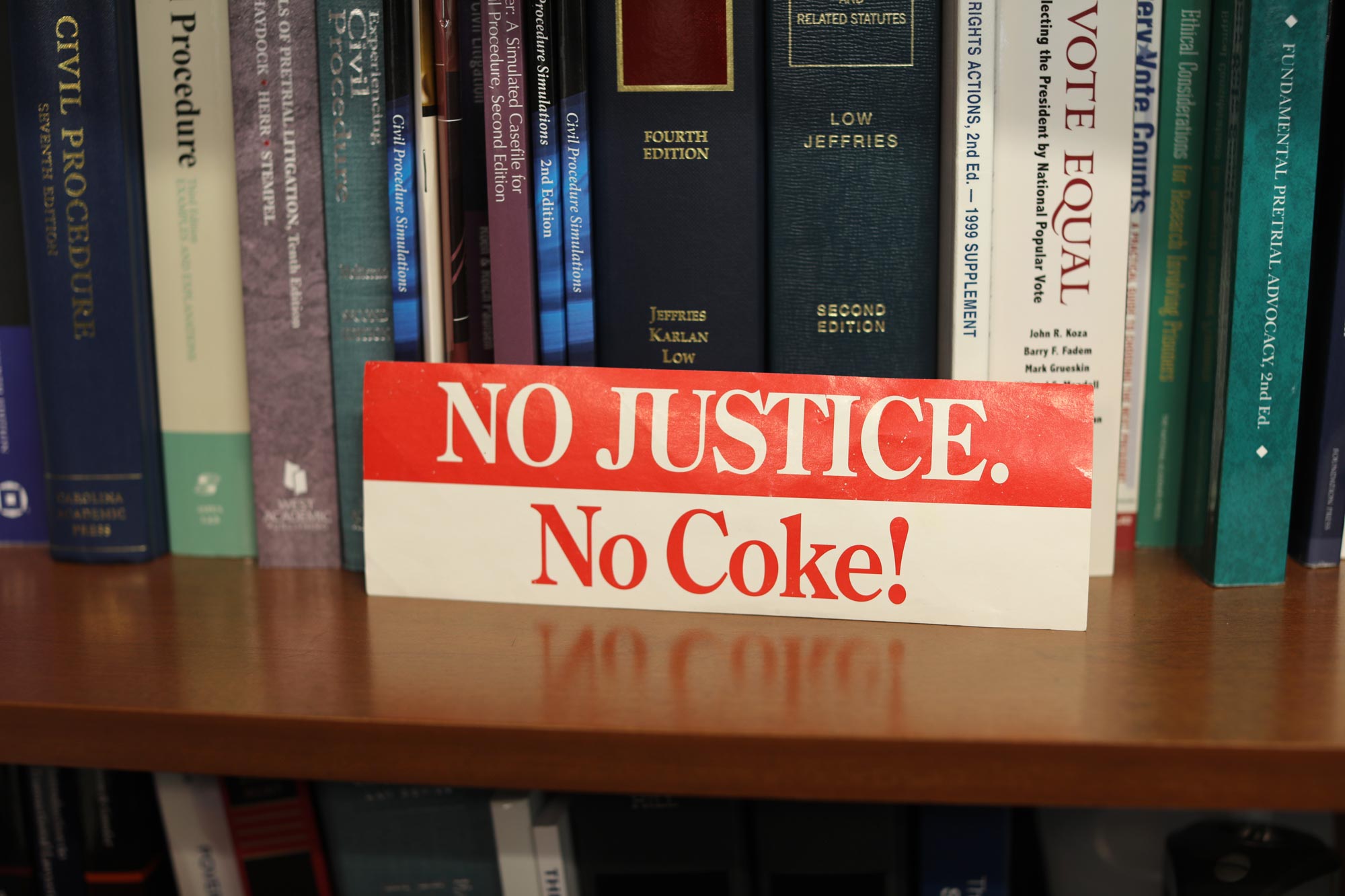
Professor of Law Sarah Shalf’s bumper sticker is a reminder of a big case she worked on (Photo by Josette Corazza, School of Law).
In 2000, Sarah Shalf, a 2001 Law School graduate, was a summer associate at Bondurant, Mixson & Elmore in Atlanta while the firm litigated a race discrimination class action lawsuit against Coca-Cola Co.
“We had a soda fountain in the kitchen, but this bumper sticker hung on it, so we did not drink Coke products while the suit was pending,” Shalf said.
Later that year, the case resulted in the largest race employment discrimination class action settlement in history – $192 million in total.
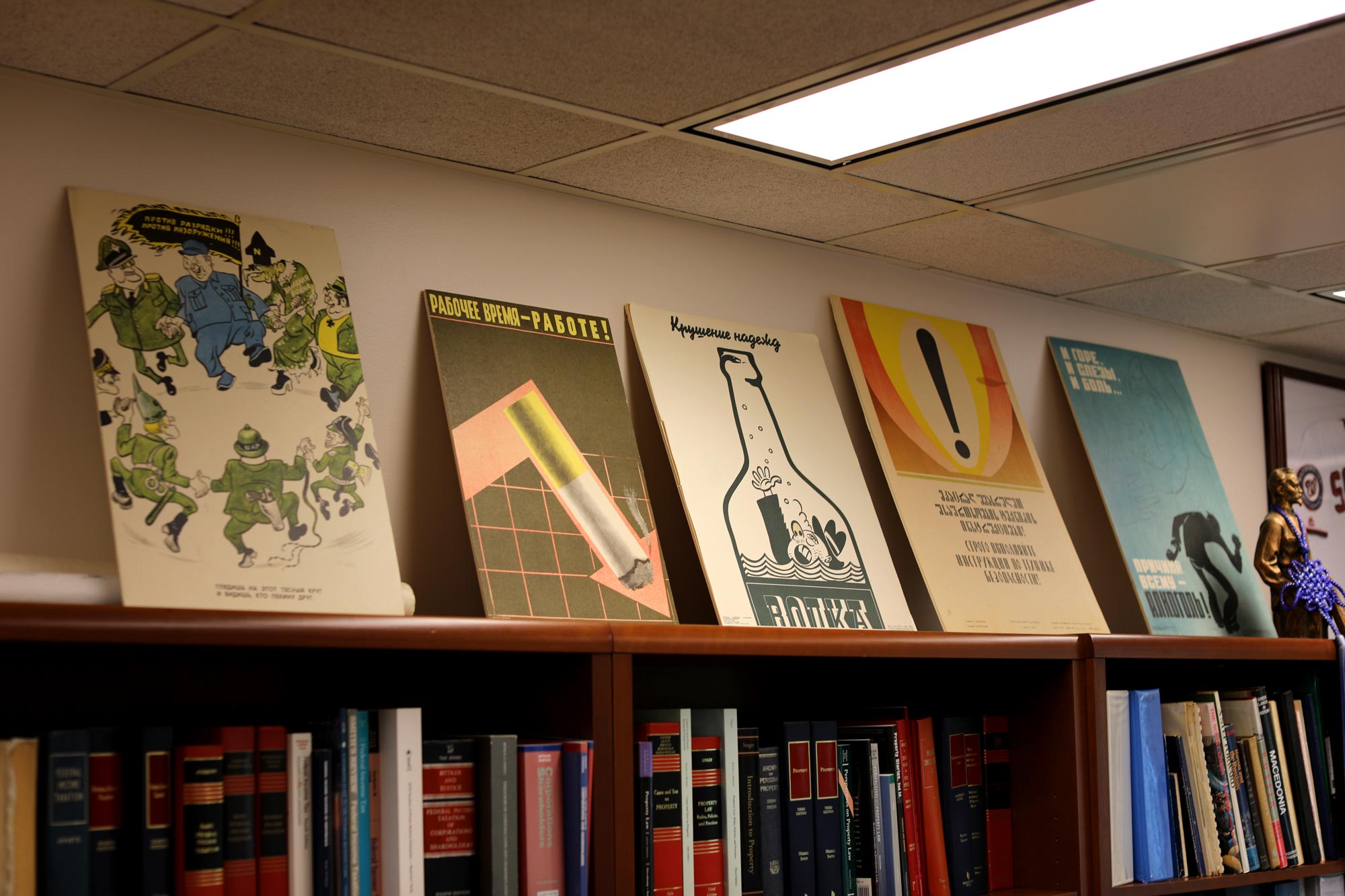
Professor Paul Stephan travels widely in Eastern Europe. He displays many posters and objects from the Soviet era in his office (Photo by Josette Corazza, School of Law).
Paul B. Stephan graduated from the Law School in 1977. An international law expert with a focus on Soviet and post-Soviet legal systems, he keeps souvenirs from his travels to the region.
All the pictured posters, except for the one on the far left, “date back to the labor discipline campaign sponsored by Soviet leader Yuri Andropov, Leonid Brezhnev’s successor and a kind of proto-reformer who promoted and, in some sense, prefigured Gorbachev,” Stephan said.
